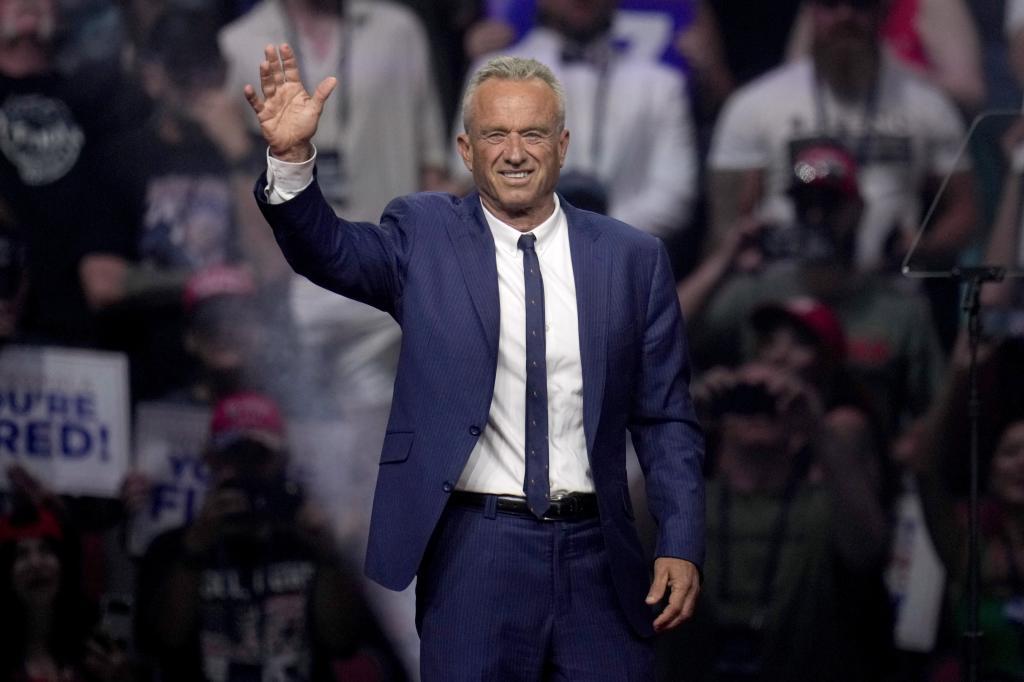The last time a new party appeared that broke the duopoly of American politics was 190 years ago when the Whig Party was born (a word that means nothing), a conservative formation that roughly grouped the emerging middle class and industrial bourgeoisie, and whose implosion after two decades in which it led four of its members to the Presidency ended up generating the Republican Party.
Since then, the idea of a party breaking the Democrat-Republican duopoly has been a constant. And also a failure. Not only a failure for independent parties but also for those presenting a more similar ideology to them. George Bush senior lost to Bill Clinton in 1992 due to the emergence of a proto-Trump, the millionaire Ross Perot. With a populist and isolationist message and a self-made man rhetoric, Perot garnered 19.9% of the votes, damaging more the Republicanism that has always had more isolationist tendencies than the Democrats. It was the highest figure achieved by what derogatorily in the US is called a third party since in 1912 Theodore Roosevelt reached 27.4% with the Progressive Party, which he had created.
That is the destiny of third parties in the United States: to annoy others. When in 2000, amid the bitter dispute in the Supreme Court over who had won the elections, George W. Bush or Al Gore, the Green Party candidate Ralph Nader said, "the truth is that I believe I am the one who won the elections," many Democrats wanted to strangle him. Gore had more votes than Bush. But he would have been the undisputed winner of the elections if it hadn't been for the 2.7% of votes that Nader took. The experience of 2000 was for the Democrats the same as that of 1992 for the Republicans.
That is why candidates who are neither Democrats nor Republicans tend to be labeled as spoilers, a word that is difficult to translate and means something like "the one who ruins something". In other words: they do not win, but they make others lose because they split the vote. Surely many supporters of the PP and the PSOE also consider Vox, Ciudadanos, and Unidas Podemos as spoilers, although Spanish does not have such a precise word.
And in this 2024, those third parties reappeared but soon dissipated. The elections of November 5th have been historic. The most important of those third parties with possibilities was one with a distinguished name: Robert F. Kennedy. He is the son of the Attorney General and presidential candidate of the same name, assassinated in 1968 during the campaign, and nephew of President John F. Kennedy. His popularity fluctuated, before suspending his presidential campaign and supporting Trump, between 9% and 15%, according to polls, which was noteworthy given that his program was a public danger. RFK Junior, as he is known, is an anti-vaccine activist who has stated that Nazi Germany was a better system than the current one because Jews, at least, could hide in an attic like Anne Frank, while today there is no way to escape Covid-19 vaccines. He has also claimed that the pandemic "is aimed at attacking Caucasians [whites] and blacks. The most immune people are Ashkenazi Jews [mostly from Central and Eastern Europe and the majority in Israel] and Chinese." He has also suggested that chemicals in drinking water are making Americans homosexual.
Apart from these atrocities, the political proposals of the President Kennedy's nephew lean towards the left. His program is a diluted version of Bernie Sanders', the socialist candidate who contested the Democratic primaries against Hillary Clinton in 2016. RFK Junior sees illegal immigration as a humanitarian problem, supports police reform -even though that is a city's competence, not the State's-, advocates for stricter environmental regulations, moderate reduction in defense spending, and a more progressive tax system. Kennedy is a skilled politician, as demonstrated when, realizing he had no chance in the Democratic primaries, he decided to run as an independent. The same skill that led him to side with Trump and could lead him to have a role related to healthcare or regulation of the country's medicines and food.
"If President Trump is elected and honors his word, the enormous burden of chronic diseases that now demoralize and bankrupt the country will disappear," he pointed out in August, implying that the Republican has promised him some position related to public health.
"If I am given the opportunity to solve the chronic diseases crisis and reform our food production, I promise that within two years, we will see a drastic reduction in the burden of chronic diseases. We will make Americans healthy again," he stated.
The alliance seemed clear then because minutes after Robert Kennedy's announcement, Trump thanked him for his support: "I want to thank Bobby. It's something very nice what he did and really important. He's a great guy, respected by all."
Robert Kennedy's anti-vaccine fanaticism contrasts with his pragmatism in other areas, such as when he supported Israel's offensive in Gaza after Hamas attacks.
With that ideology, Kennedy has the support of a part of the American left. But his name and his opposition to vaccines made him very popular in two Democratic strongholds: Hollywood and Silicon Valley. Not in vain, he is married to actress Cheryl Hines, one of the stars of the cult TV series Curb Your Enthusiasm. In fact, they were introduced by Larry David, one of the creators of Seinfeld, which has been airing on HBO since as far back as the year 2000.
RFK Junior combines Trump's populism with vaccine rejection -which is cross-party- and a generally left-wing proposal.
